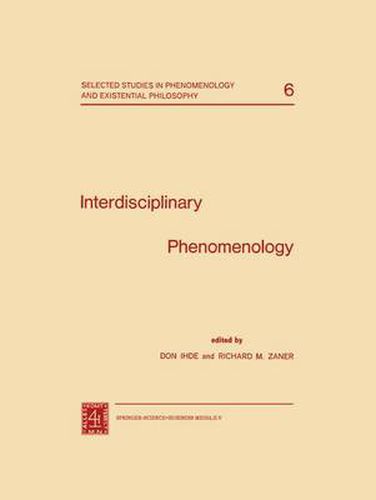Readings Newsletter
Become a Readings Member to make your shopping experience even easier.
Sign in or sign up for free!
You’re not far away from qualifying for FREE standard shipping within Australia
You’ve qualified for FREE standard shipping within Australia
The cart is loading…






This title is printed to order. This book may have been self-published. If so, we cannot guarantee the quality of the content. In the main most books will have gone through the editing process however some may not. We therefore suggest that you be aware of this before ordering this book. If in doubt check either the author or publisher’s details as we are unable to accept any returns unless they are faulty. Please contact us if you have any questions.
Historically, philosophy has been the point of origin of the various sciences. However, once developed, the sciences have increasingly become autonomous, although often taking some paradigm from leading philosophies of the era. As aresult, in recent times the relationship of philosophy to the sciences has been more by way of dialogue and critique than a matter of spawning new sciences. This volume of the Selected Studies brings together a series of essays which develop that dialogue and critique with special reference to the insights of phenomenological philosophy. Phenomenology in its own way has been interfaced with the sciences from its outset. Perhaps the most widely noted relation, due in part to Edmund Husserl’s characterization of the beginning steps of phenomenology as a descriptive psychology, has been with the various psychologies. It is weIl known that the early Gestaltists were influenced by Husserl and, later, the Existential psychologies acknowledged the impact of Martin Heidegger and Jean-Paul Sartre, to mention but two philosophers. And, of course, Husserl’s lifetime concern for the foundations of logic and mathe maties, especially as these (the former in particular) were developed into a foundational theory of science, has figured prominently in these dialogues. 2 INTRODUCTION Less directly but more currently, the impact of phenomenology upon the disciplines has begun to be feIt in a whole range of the sciences.
$9.00 standard shipping within Australia
FREE standard shipping within Australia for orders over $100.00
Express & International shipping calculated at checkout
Stock availability can be subject to change without notice. We recommend calling the shop or contacting our online team to check availability of low stock items. Please see our Shopping Online page for more details.
This title is printed to order. This book may have been self-published. If so, we cannot guarantee the quality of the content. In the main most books will have gone through the editing process however some may not. We therefore suggest that you be aware of this before ordering this book. If in doubt check either the author or publisher’s details as we are unable to accept any returns unless they are faulty. Please contact us if you have any questions.
Historically, philosophy has been the point of origin of the various sciences. However, once developed, the sciences have increasingly become autonomous, although often taking some paradigm from leading philosophies of the era. As aresult, in recent times the relationship of philosophy to the sciences has been more by way of dialogue and critique than a matter of spawning new sciences. This volume of the Selected Studies brings together a series of essays which develop that dialogue and critique with special reference to the insights of phenomenological philosophy. Phenomenology in its own way has been interfaced with the sciences from its outset. Perhaps the most widely noted relation, due in part to Edmund Husserl’s characterization of the beginning steps of phenomenology as a descriptive psychology, has been with the various psychologies. It is weIl known that the early Gestaltists were influenced by Husserl and, later, the Existential psychologies acknowledged the impact of Martin Heidegger and Jean-Paul Sartre, to mention but two philosophers. And, of course, Husserl’s lifetime concern for the foundations of logic and mathe maties, especially as these (the former in particular) were developed into a foundational theory of science, has figured prominently in these dialogues. 2 INTRODUCTION Less directly but more currently, the impact of phenomenology upon the disciplines has begun to be feIt in a whole range of the sciences.